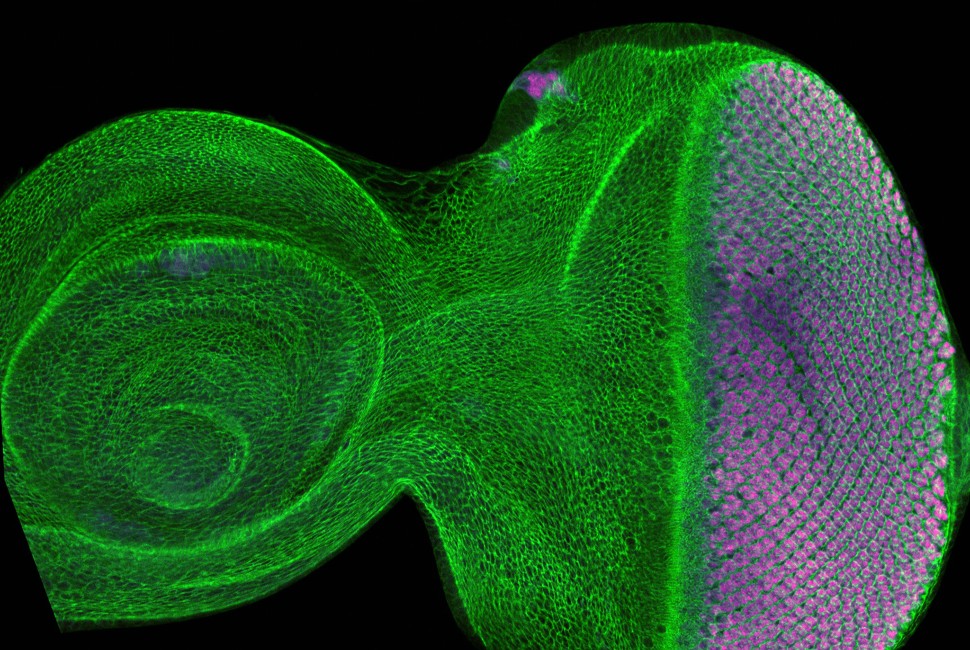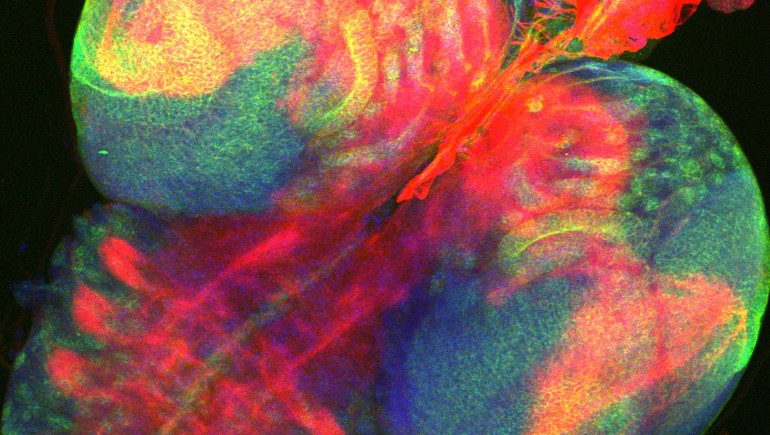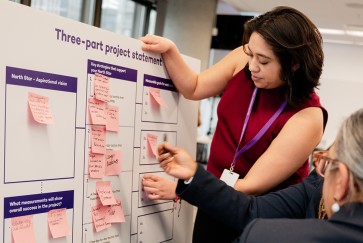Northwestern University has been awarded $50 million over five years from the National Science Foundation (NSF) and the Simons Foundation to establish the National Institute for Theory and Mathematics in Biology (NITMB), to be based in downtown Chicago. The institute will be the first of its kind in the U.S.
Mathematics has the potential to distill biology’s complexity and predict future phenomena. NITMB researchers from across disciplines will develop and use math to investigate some of the most important fundamental questions in the life sciences. And the institute offers bidirectional opportunities: Discoveries in biology also will motivate new developments in mathematics.
The University of Chicago (UChicago) is Northwestern’s key partner in this initiative. Together, the two universities will create a nationwide collaborative research community that will generate new mathematical results and uncover the “rules of life” through theories, data-informed mathematical models, and computational and statistical tools. The institute also will foster international collaborations at the interface of the mathematical and biological sciences, helping establish a vibrant worldwide research network for decades to come.
“We are delighted to partner with the University of Chicago on another groundbreaking interdisciplinary endeavor,” Northwestern President Michael Schill said. “Through deliberate and intentional research collaboration, we can have a greater impact on our region and society.”
We hope to revolutionize the study of biology, much like physics has benefited from an alliance with mathematics.”
Director of the new institute
Foundational advances in biology and mathematics will lead to increased knowledge of human intelligence, advances in the biomedical sciences and better understanding of the effects of climate change upon plants and animals, among other benefits.
Richard Carthew, the Owen L. Coon Professor of Molecular Biosciences in Northwestern’s Weinberg College of Arts and Sciences, is director of the new institute.
“There are many deep questions about human life and all branches of biology,” Carthew said. “Our goal is to better understand the mathematical basis underlying both the capabilities and constraints of living systems. We hope to revolutionize the study of biology, much like physics has benefited from an alliance with mathematics. An ambitious goal, yes, and an exciting one.”
As Carthew and his team begin working toward this goal, he noted that Northwestern and UChicago have complementary strengths in mathematics and the life sciences. “Together, we are bigger than the sum,” he said.
William Kath, the Margaret B. Fuller Boos Professor and professor of engineering sciences and applied mathematics at Northwestern’s McCormick School of Engineering, and Rebecca Willett, professor of statistics and computer science at UChicago, are deputy directors of NITMB.
“The NITMB will achieve foundational advances at the intersection of mathematics and biology,” Willett said. “These include tools for understanding when a group of organisms exhibit collective behavior that wouldn’t be seen in any individual, a theory of how masses of undifferentiated cells establish the geometric pattern that frames a fully developed organism, and a mathematical understanding of how living systems learn and adapt to new conditions with limited training. The Northwestern and UChicago teams will bring together leading experts in mathematics and biology and make the Chicago area the hub for convening scientists around the globe to work on these important problems.”
The institute’s work promises to have a lasting impact on the disciplines of life sciences and mathematics as well as society at large.



